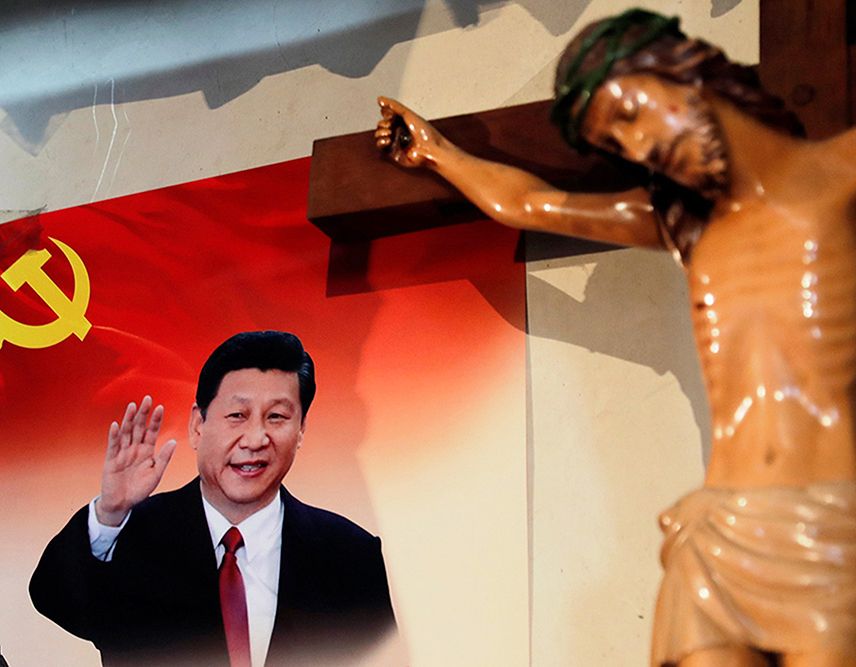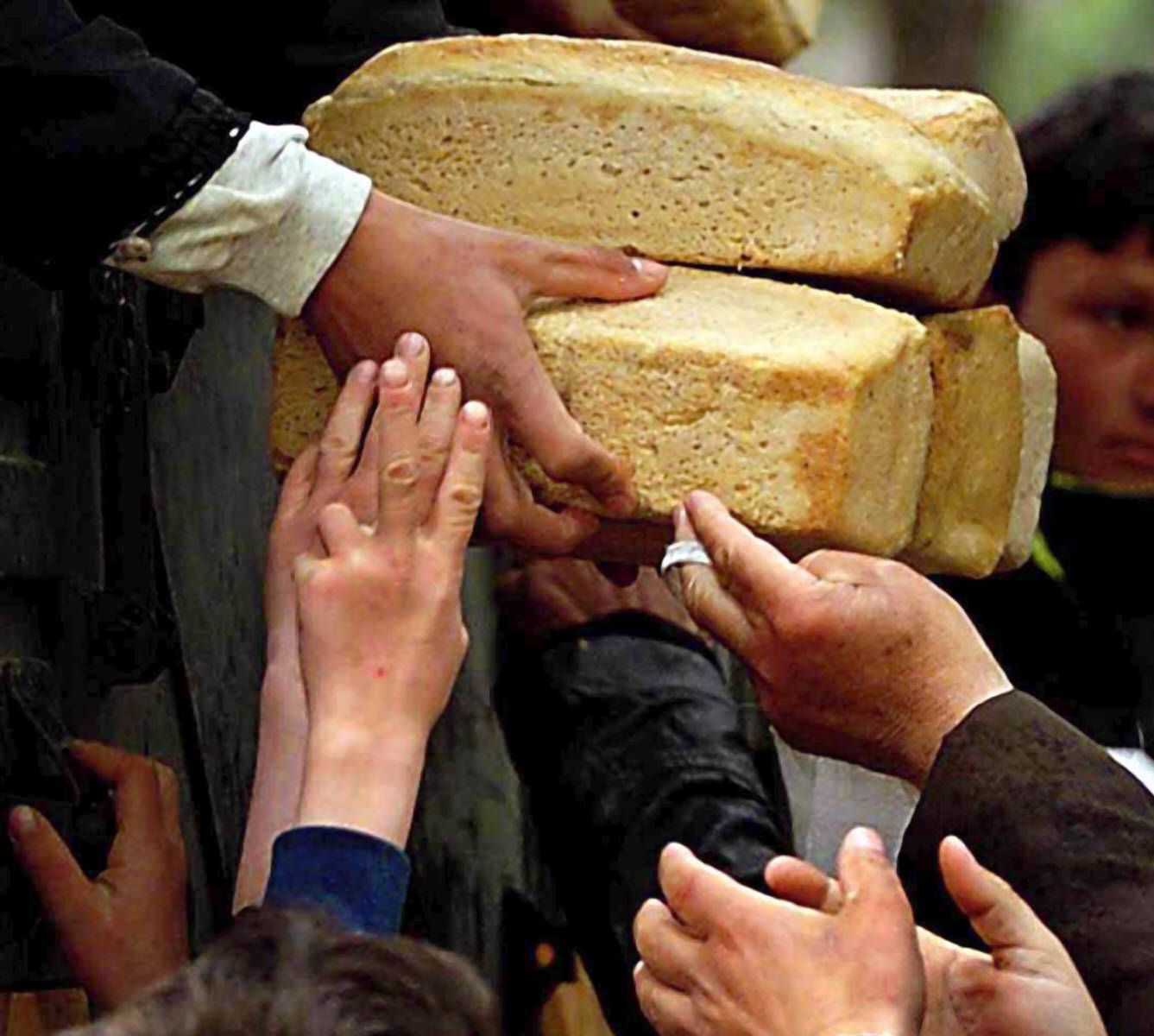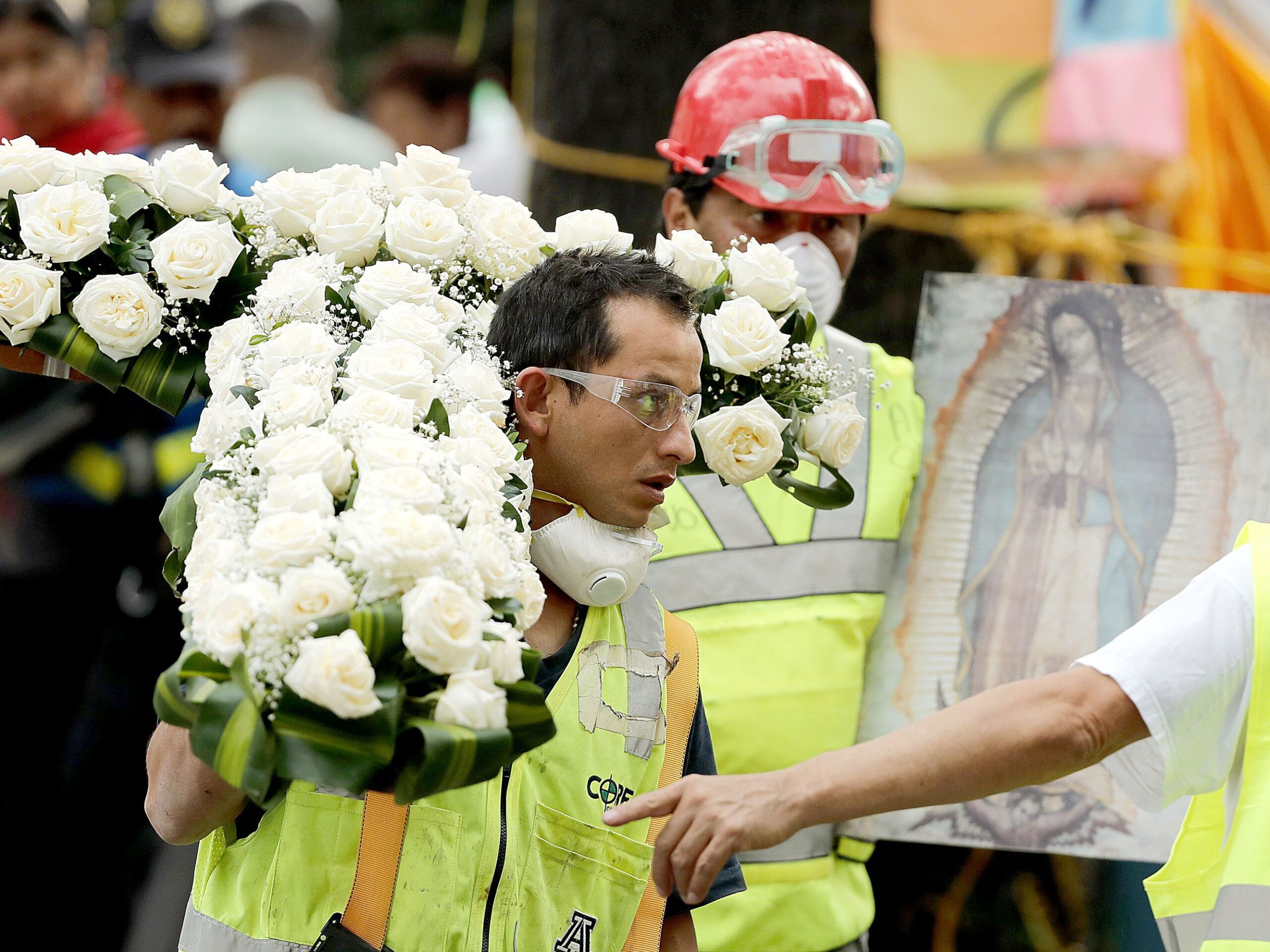The Director of the Philippine Charity Sweepstakes Office, Manuel ‘Manoling’ Morató, in a letter to The Inquirer’s editor some time ago, classified you as “one of the most politicized persons in this country which is something so ugly for a nun to be.” He even considered you a persona non grata. What stirred such reaction?
I wrote to the paper’s editor while I was in Tanzania, East Africa (September 26, 2009), complaining about the Court of Appeals’ decision denying whistleblower Rodolfo “Jun” Lozada’s petition for the writ of amparo. I stated that the decision was unfair, because he had been kidnapped, but the Court was so politically compromised that it was “incapable of rendering justice to our people.”
I was surprised to read Morató’s letter to the paper on October 15, 2008. I don’t know him and I don’t know what he had to do with the issue. He stated that I was causing “trouble in this country and added so much noise to the destabilization of our nation.” He called me “a rabble-rouser, a shame to the faithful who live up to the Christian values as taught us by Christ,” and suggested that I should stay in Tanzania for good and leave them alone. Concluding, he said that I was “far away from being beatified much less canonized.” (I am not dead yet so no reason to be beatified!) That was the occasion for the critique. The reason was my advocacy for our sanctuary program and the inclusion in it of Jun Lozada.
Did you get other “compliments” of this kind?
I heard that even some bishops say that I am “too much!”
Did they mean “too political?”
Perhaps. Not always do I agree with the bishops. For instance, recently I disputed the views of [Manila Archbishop Gaudencio] Cardinal Rosales when he said that the warnings of another people power uprising in case of widespread vote fraud were “crazy [and] irresponsible.” I said: “With due respect, I disagree vehemently. It’s more irresponsible if one does nothing, when one’s rights have been violated” I do believe in people power. The Cardinal said there’s the law… What law was he referring to? The law that arrested the Morong 43, the law that freed the Ampatuans, the law that denied the writ of amparo to Jun Lozada, the law that is used by the powerful for their own good? I quoted the former Chief Justice Artemio V. Panganiban when he said that, at that moment, all the institutions of government were severely compromised. So, one cannot go to them for justice, to redress grievances.
An old Church’s tradition
What consists your sanctuary program?
To provide sanctuary is an old tradition of the Church since the Middle Ages. Sacred places were places of asylum where fugitives were immune from arrest. For us in the Association of Major Religious Superiors (AMRSP), it is different: we provide refuge to people whose lives are in danger because they have done something honest or brave or courageous for the country. Obviously, there’s a procedure: they have to apply for it and this is subject to approval. Among the criteria are the sincerity and the credibility of the person. We have had this program since 1978. But in 2004, when the Anti-Subversion Law was passed, we thought more people would be threatened and so we invigorated the program.
How many people are under this program?
Two years ago, we had 13 people. Right now, we have only two. We had another one, Navy Lieutenant Nancy Gadian who exposed corruption in the Army connected with the Balikatan exercises, but we sent her out of the country. Strictly speaking, she is no more under us. Those who are with us are Jun Lozada and Dante Madriaga, both whistleblowers of the botched national broadband network (NBN) deal.
Who shoulders the program’s expenses?
The AMRSP is composed of about 300 Religious Congregations. We have a kind of pledge: the board and lodging is paid by the congregation that accepts to give asylum. The Lozada family is with the Christian Brothers of De La Salle. The children study there, too. The Madriaga family is with the Daughters of Charity. I got the money for the tuition fees of two of their children; the other four also enjoy scholarship in Sta. Isabel College owned by the Daughters of Charity.
Providing sanctuary, you are making an implicit statement – that you do not trust public officials because you have to look after the safety and integrity of whistleblowers…
It depends upon who is the opponent of the person to whom we give sanctuary. They can be the military, the Government… We oppose what is evil in the institution, not the institution per se. In the case of Jun Lozada, there was a kidnapping – they almost killed him – and he has 16 harassment cases against him. Our hope is that, since there’s a new dispensation, all those ridiculous cases will be dismissed. If there’s a new Ombudsman and a new Head of the Department of Justice (DOJ), they will see that there is no merit in those cases. Our other hope is that he will have an income for his family. But the three concerns that must be addressed are: security, income and the resolution of the cases.
We are all citizens
Are you not afraid of politicizing the Association and have people misinterpreting your mission?
First of all, what is politics? Politics comes from the Greek word Polis, that is city, which means you are a citizen of a country and, as such, you have the right to participate in the decision-making process. We are religious, but we are still citizens. Actually, we don’t even talk about politics; we talk about justice, being prophetic… Being religious, we are prophetic by nature. Maybe the bishops are not. They are supposed to be conservative – to conserve the doctrine and so on. What does prophecy mean for me? It is to announce the Good News of salvation, mirror it in our lives and denounce anything unjust and unfair that is done against the people. We do not do partisan politics. We do not side with any particular political candidate even, if personally, we might. For instance, during the election campaign, I was invited to appear with Noynoy Aquino in an advertisement, but I refused. Our Association is neutral even, if personally, I am for him. There’s good politics and bad politics. I think politics is an essential part of everybody’s life. We don’t have to identify politics necessarily with dirty or partisan politics. We don’t do that kind of politics. But we are concerned with what is really happening to the country and we fight against injustice. Throughout our history, since the time of Sr. Christine Tan during Martial Law, the AMRSP has been actively involved in the decision-making processes in the country – that is our prophetic legacy. We didn’t cease to be citizens when we became religious.
Religious Sisters have been on the forefront in the struggle for human rights, democracy, good governance, accountability… Is it part of your mission?
I really believe that the very nature of religious life is prophetic – to give witness to truth, to fight for peace and justice and to side with the people in their needs. This is what I consider prophecy in these modern times – to be involved in the struggle for human rights.
Has the Church’s hierarchy been up to people’s expectations?
No. I am sorry to say, it hasn’t. People are clamoring that the CBCP should come out as a body to do moral judgments. For example, on the morality of “Hello, Garci.” (It refers to the alleged wiretapped conversations between, among others, former President Arroyo and COMELEC commissioner Virgilio Garcillano for the rigging of the 2004 presidential election. – Editor) Obviously, moral statements have political consequences, but they are not directly political statements. There are some very prophetic bishops. As a body, however, they have fallen short of the expectations of the people. However, we should give them the credit for a recent good statement they made on the Morong 43.
Poverty is the cause of corruption
There’s pervasive corruption and mass poverty in the Philippines. Why is corruption so widespread?
Because of poverty. Perhaps, it is like the egg and the chicken. Poverty is the cause and the consequence. Because there’s poverty, there’s corruption; and the consequence of corruption is more poverty. Then, there’s greed. A government official told me that it is easy to be corrupt: one doesn’t need to do anything, just accept the bribe. If you are in power, thick envelops come without your exerting any effort. Recently, in a talk show, a very good and honest policewoman told me: “Please, pray for me, Sister, because it is very easy to be corrupt. Last week I was offered half a million pesos just to say that I hadn’t seen something!…
Does it have anything to do with religion and culture?
I think there’s corruption everywhere in the world. The difference is only in the range. Here, it is terrible, it is endemic and systemic. It enters the culture, the system, and becomes a way of life. It can be done in small or in big areas, the difference is in opportunity. The impulse is the same. Corrupt people should be punished. But, in this country, nobody is ever punished; there’s a culture of impunity. The corrupt outgoing government officials should be prosecuted. In Korea, for example, they have two former presidents in prison. They were corrupt, but they have been punished.
Is the Church doing enough to curb corruption?
No. Even within the Church, there’s corruption. Just think of the sexual harassment of minors that is going on. Isn’t that corruption if you cover it up? It is difficult for the Church to come out because it shares that sin. The Church has been failing to show what Christian love is all about. Former president, Gloria Macapagal-Arroyo, goes to Mass everyday and receives communion and look at what she has done. And some bishops blessed her. One would expect that some of them would be like prophet Nathan making King David aware of his sins and helping him to repent (2 Samuel 12:1-15). That is the moral obligation, the pastoral duty of a shepherd.
What should society and individuals do to eradicate such a social cancer?
We should begin with our own areas of responsibility, to see whether we are really practicing justice and not doing acts of corruption. We shouldn’t use our power, even symbolic, for our own good. At the same time, we should expose, denounce big corruption.
There’s active and passive corruption. Is it a grave social sin?
Yes. A lot of corruption is, in a way, a sin of omission: we know it’s there, but we do nothing about it. Or, we receive a bribe and we keep it. We cannot excuse ourselves saying that we didn’t ask for it. The fact is that we accepted it.
Since poverty is seen as a great source of corruption, what attitudes and programs can help in fighting corruption?
I think there should be an economic reform to provide for the basic necessities of the masses of people – housing, work and education for the children. If these basic needs are not fulfilled, we can talk about democratic forms, but there’s no democracy, because people will sell their votes. Many people sell their votes, because they are hungry. The most important basis of democracy is that the majority of people have their basic necessities fulfilled. The new administration should think about it – how to give jobs to the people, to give peasants purchasing power… The country has money, but it goes to a few because of corruption. Just think of the scandalous NBN-ZTE deal. The commission there was 12.5 billion pesos and only two families would have taken advantage – the Abalos family and the First Gentleman’s (FG) family. Imagine what we could do with all that money? We could wipe out all the Manila slum areas and give people a decent housing. And that wasn’t the only fraudulent project; there were others: the North Rail, the South Rail and so on. If all the money which disappeared had been used for basic services, we wouldn’t have misery around. Many people are living under the bridge. In fact, yesterday, in my talk show, I interviewed a woman tricycle-driver and I discovered that she has been living under a bridge for 12 years. I don’t think the Philippines is so poor that it could not give every single family in this country a decent housing. We have enough resources for that.
Watching for good governance
Many have been giving unsolicited advice to the new President. What are the most pressing needs of the country?
I was also asked by a newspaper to do that, too. I answered that I was not going to do so because too many people were already giving advice. What I said was that I had started praying for him, but I have also started a Citizens’ Watch for Good Governance, a coalition of different groups very active during the elections that will focus on anti-corruption. We believe that in being vigilant, wrongdoing will decrease. EDSA 1 and 2 were not a failure as some say. The failure was that, afterwards, we let the leaders by themselves. Now, we are going to watch them, either to praise or criticize them. We are going to check the senators’ and congressmen’s lifestyle. We will see what they do with the pork barrel. We will see if they attend the sessions or not and we will give them a calabaza at the end. Many never attend any session, they are just wasting the money of the people. It is a kind of corruption, because they get people’s money and they do not fulfill their duties. By watching them, we want them on their toes and will not let them get away with impunity. This is our dream.
What is the role of the Church in bringing about a more equal and just society?
Our role is to be the conscience of society. We should remove the obstacles to the Kingdom of God with courage and conviction. We should set the moral tone of society. For instance, it is shameful that some bishops accepted gifts from Malacañang on their birthdays. How can they say something prophetic about their “benefactors”? I wish that no bishop should receive anything from government officials.
Has the Church been failing to form good citizens?
In general, yes. Since 1970, Catholic schools provide education for justice and social transformation. But, in the Philippines, Christianity has not been taught in such a way that it would really be a part of our lives. Otherwise, why are we the great Christian country in the Far East and yet the most corrupt? What does that mean? It means that we haven’t really grasped what being Christian is about. We should educate people for justice and social transformation, which begins with Christ’s option for the poor. Being his disciples, we should opt for the poor, too. It brings us to fight against injustice. Morality is seen as referring only to the sixth and ninth commandments. Even the bishops make rallies only against condoms and the RH bill; they never make rallies for justice and against corruption. Moral education should refer to the whole way of living justly, without exploiting people.
Do we need a kind of truth and justice commission?
Yes, we need truth but also justice (not only reconciliation like in South Africa). Therefore, we should file cases against corrupt officials and bring them to court. But first, we should change the court people. I pity President Noynoy. Everybody is expecting a lot from him. If he could just reduce corruption by 50%, I would consider it a great success of his administration. I cannot expect him to eradicate the whole plague. Meanwhile, we should do our part in fighting corruption by watching the government offices. And I have a suggestion: all the stakeholders of a department should be watching the department. It is our duty to help this government work for the people.
This interview was made before the inauguration of the new President.
















